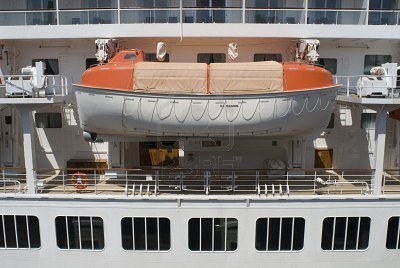A common carrier has a continuing duty and obligation for the care of its passengers. Its duty is to warn of dangers known to the carrier in places where the passenger is invited to, or may be reasonably expected to visit. This duty extends throughout the length of the voyage, and does not cease at each port of call, only to resume when the passenger re-embarks. Carlisle v. Ulysses Line Ltd., S.A., 475 So.2d 248 (Fla.3d DCA 1985)
 On the second day of a seven day cruise, Passenger Doe became ill and began vomiting blood. He presented to the cruise ship’s infirmary, however, instead of receiving life saving medical care, or being evacuated to a proper medical facility, the ship’s medical doctor and Captain made the decision to place him and his wife in a lifeboat in the middle of the ocean, in the dark of night, and transport them to a coastal village in a foreign country.
On the second day of a seven day cruise, Passenger Doe became ill and began vomiting blood. He presented to the cruise ship’s infirmary, however, instead of receiving life saving medical care, or being evacuated to a proper medical facility, the ship’s medical doctor and Captain made the decision to place him and his wife in a lifeboat in the middle of the ocean, in the dark of night, and transport them to a coastal village in a foreign country.
In desperate need of a blood transfusion, he was brought to a makeshift medical facility. After a horrific trip, and in dire need of blood transfusion, Mr. Doe and his wife were told that the facility did not have blood readily available to him. The facility attempted to get blood, but when the blood finally arrived, it was frozen and had to be thawed under heat lamps. The thawing process took several hours, and before any blood could be transfused into Mr. Doe’s body, as he laid on a gurney, with his wife at his side, he died. Teh couple forty-year life together ended in the most atrocious of circumstances.
This awful event was even more tragic because this elderly couple spent their lives helping other people. When this couple went into retirement, they served as missionaries traveling throughout North America in their mobile home to various Christian ministries providing carpentry, plumbing, painting, electrical help, as well as tutoring to the poor and needy. Sadly, when they needed help, no one was there for them.
The cruise ship injury lawyers at Leesfield & Partners fought for justice and were able to reach a confidential settlement with the cruise line. In addition, the cruise line assured our client that because of this tragedy measures had been taken to ensure that an event like this would never happen again. They promised that rather than evacuating dying passengers on life boats, they would try their best to heliport injured passengers to avoid further delays in getting medical treatment offshore. They also promised to make sure that injured passengers would be taken to well-equipped medical facilities and hospitals and avoid at all costs evacuations to small clinics that do not have the personnel, manpower, and most importantly, the proper medical equipments to not only save lives but stabilize patients in need of immediate medical attention.
Leesfield & Partners have been handling Wrongful Death cases of Cruise Ship passengers for individuals and families for over 35 years, serving those areas in and around Miami and South Florida (Miami-Dade, Monroe, Broward and Palm Beach County). If you or a person you know have sustained an injury while on a cruise ship, or a loved one died while on a cruise ship, contact one of our experienced Cruise Ship personal injury attorneys at 800-836-6400 for a free case evaluation.
 Cruise Ship Lawyers Blog
Cruise Ship Lawyers Blog


